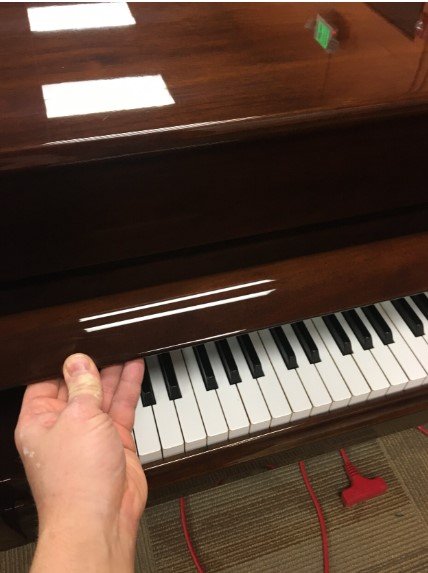It does not take "a level of analytical processing in the brain" to hear two hands playing the piano. I'll speculate that many people can tell when only one hand is playing and they can tell when one hand lifts off the keyboard and when it rejoins playing. The change in sound is obvious.
Maybe for some it takes careful listening -- there is something of a trend away from careful listening on WBF with its primary focus on gear and not on music, or listening. That's okay -- people enjoy the hobby for different reasons. I enjoy having some rudimentary knowledge of the instruments I'm hearing. I don't consider knowing a little about instruments as analysis. But cheeky gotcha questions (where this started) belie genuine interest.
Perhaps more folks than imagined do not understand the graduated frequency keyboard of a piano where (for the most part) lower frequency notes are played with the left hand and higher frequency notes are played with the right hand and are thus unable to make a distinction between two hands. Free your mind from visual listening. Perhaps you don't recognize you hear two hands or grasp that one is playing bass notes and the other is playing treble. Can you distinquish bass from treble? And for the blissfully-clueless-style of listener maybe it doesn't matter and its all so laid back that knowing about instruments is unimportant for enjoyment. But you do hear it. Left hand and right hand. It is obvious and of course better recordings reveal more tonal and dynamic differentiation.
"
From the Bach-Busoni, Horowitz proceeded to Schuman’s Fantasy in C Major, where his hand-over-hand technique ranged across the octaves with amazing dexterity, sounding at times as if he had three hands. " --
Horowitz at Carnegie Hall: An Historic Return


